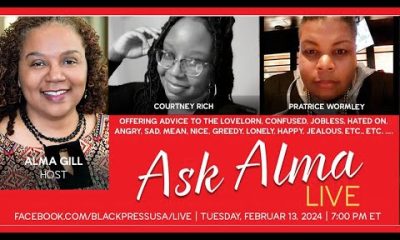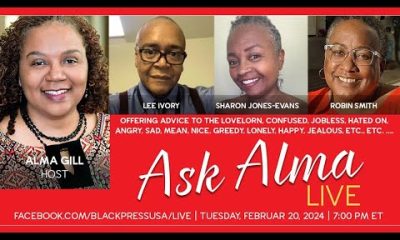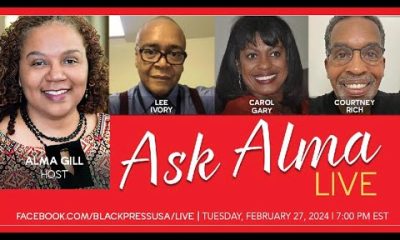Op-Ed
Ask Alma
By Alma Gill
NNPA Columnist
Mama taking over the Wedding
Hey, Alma –
My friend is getting married, I’m in the wedding and I couldn’t be happier for her. She’s not a “big wedding” type of person, so her mom is taking the reins to plan a giant ceremony. She went shopping for wedding dresses with her mom, and they picked out a Cinderella-style ball gown – so not her style.
As bridesmaids we went shopping together and found the perfect dress for her – it’s simple and understated, and she wants to wear flowers in her hair. But this dress doesn’t really go with the formal-style wedding her mother has planned. How does she tell her mom she found a “better” dress? I think she looks beautiful regardless, and I want her to feel happy and comfortable on her wedding day, but I also know that picking this other dress will cause so much drama with her mom (and my friend is already trying to avoid as much wedding drama as possible!).
Help, Alma! How do I be a good bridesmaid in this situation?
Hey Bridesmaid, my advice: stay out of it. This is not your red wagon to pull. Even if your friend is not a “wedding type” person, it’s still her wedding. She needs to clarify a few things. Now’s the time she needs to let her mama know, she’s no longer wearing her training bra. She has to be truthful with herself and have an honest conversation with her mother. Oh wait, here’s something you can do. After their discussion, make sure you greet her with a box of tissue or a glass of red wine, depending on her mother’s reaction.
Candidly speaking, she should never have allowed her mother to purchase a wedding dress she didn’t like nor wanted to wear. What was that about? There’s something a little bit deeper here that we’re not privy to. But anywho, after the discussion with her mom, she needs to immediately gather her troops. Your friend can call a meeting and tell every one of her wedding day wishes. Yep, she’s gotta be bold, stand tall in her wedding pumps or bare feet and lead her wedding party to what will be one of the most important days of her life. If she’s ready to get married, she’s ready to have hard, honest adult conversations that clearly express her wedding day desires.
Honestly though, I’m happy to hear that she’s not a Bridezilla, neither was my niece Leah. She was what you’d also call a low-key bride as well. My dear sister Kim passed away when she was a teenager, so when Leah allowed me to step into the MOB role, you better bet I wore that crown and girl I wore it well, LOL. Ain’t nobody got more mouth than me, I’m just sayin, LOL.
Leah let me have my MOB fun until we came to a point in the planning process that was make or break important to her. During our meetings, when I bulldozed, she sternly guided me back to my lane. Not in a mean way, not loud, not argumentative, just firm and sweet. A firm and sweet that required respect and reminded me she was a grown woman.
Don’t get me wrong, when we mothers are on a roll, it stings like a honeybee when we are challenged by our adult children. But, don’t you fret sweetie pie, her mama can handle it and will secretly applaud it. She’ll recognize, this is where her baby girl’s childhood ends and her adulthood begins.
Bottom line, all her mother really wants, is to see the joy on her daughters face that day. Everything else is just icing on the wedding cake!
Alma
Alma Gill’s newsroom experience spans more than 25 years, including various roles at USA Today, Newsday and the Washington Post. Email questions to: alwaysaskalma@gmail.com. Follow her on Facebook at “Ask Alma” and Twitter @almaaskalma.
###
Activism
Oakland Post Endorses Barbara Lee
Barbara Lee will be able to unify the city around Oakland’s critical budget and financial issues, since she will walk into the mayor’s office with the support of a super majority of seven city council members — enabling her to achieve much-needed consensus on moving Oakland into a successful future.
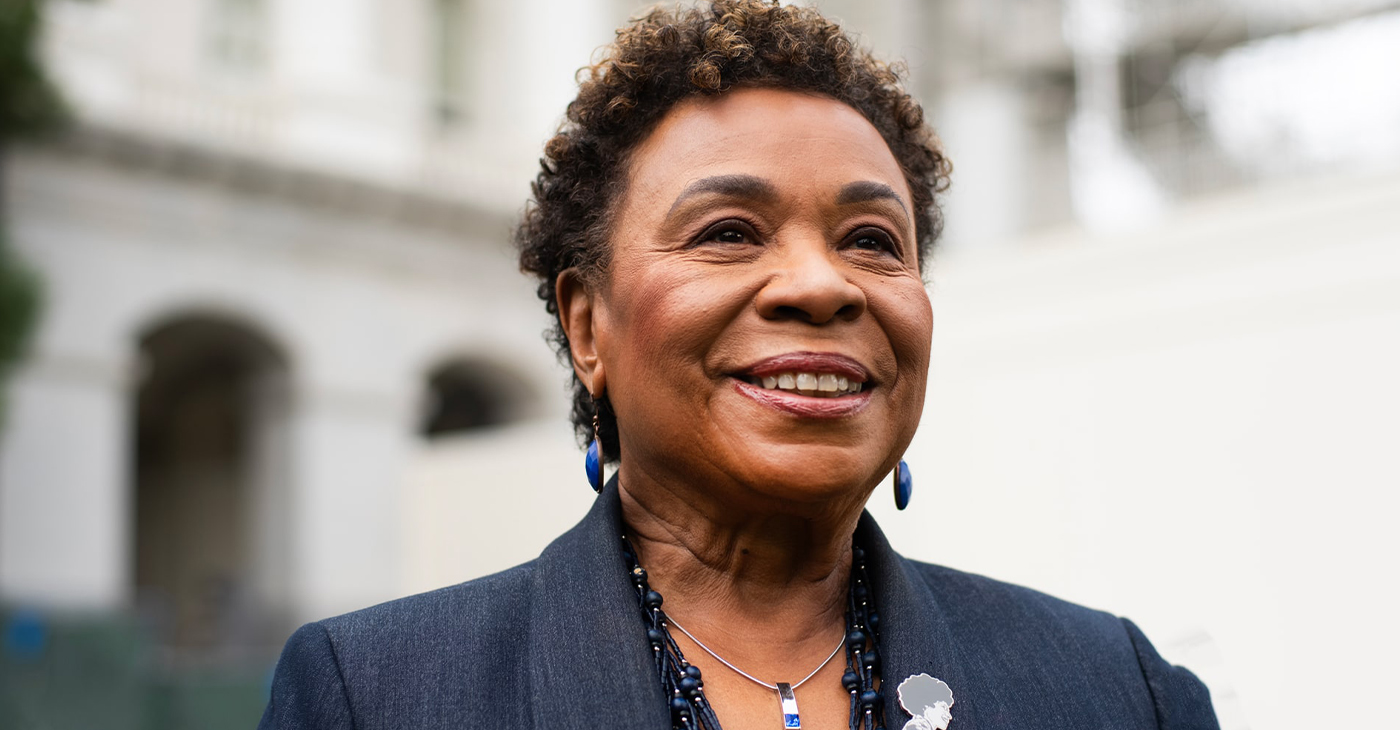
As we end the celebration of Women’s History Month in Oakland, we endorse Barbara Lee, a woman of demonstrated historical significance. In our opinion, she has the best chance of uniting the city and achieving our needs for affordable housing, public safety, and fiscal accountability.
As a former small business owner, Barbara Lee understands how to apply tools needed to revitalize Oakland’s downtown, uptown, and neighborhood businesses.
Barbara Lee will be able to unify the city around Oakland’s critical budget and financial issues, since she will walk into the mayor’s office with the support of a super majority of seven city council members — enabling her to achieve much-needed consensus on moving Oakland into a successful future.
It is notable that many of those who fought politically on both sides of the recent recall election battles have now laid down their weapons and become brothers and sisters in support of Barbara Lee. The Oakland Post is pleased to join them.
Activism
Actor, Philanthropist Blair Underwood Visits Bay Area, Kicks Off Literacy Program in ‘New Oakland’ Initiative
These community activations were coordinated with the San Francisco-based non-profit program “Room to Read.” Ray said he is also donating his time to read and take pictures with students to encourage their engagement and to inspire them to read more. The inspirational book “Clifford Ray Saves the Day” highlights Clifford Ray’s true story of saving a dolphin.
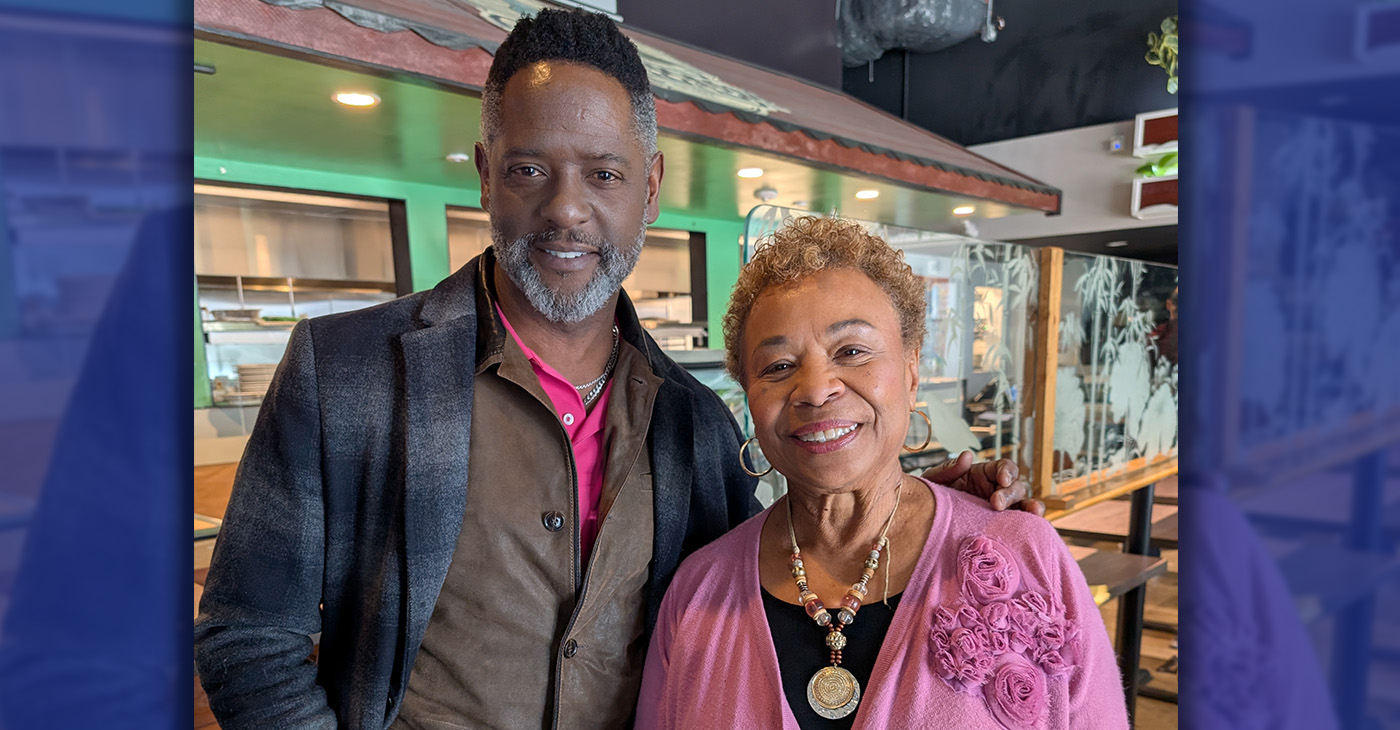
By Paul Cobb
New Oakland Series
Opinion Part 3
The Post mentioned three weeks ago that a number of our local luminaries were coming together to support the “New Oakland” movement. As this current national administration continues to eliminate our “legacy” institutional policies and programs left and right, most communities find themselves beyond “frozen” in fear.
Well, esteemed actor, long-time Bay Area supporter, and philanthropist Blair Underwood returned to Oakland this week to speak with city leaders, community trust agents, students, the Oakland Post, and local celebrities alike to continue his “New Oakland” initiative.
This week, he kicked off his “Guess Who’s Coming to Read” literacy program in some of Oakland’s middle schools. Clifford Ray, who played the center position of the 1975 World Champion Golden State Warriors, donated close to 1,000 books. Ray’s fellow teammate Charles “The Hopper” Dudley also gave Converse sneakers to students.
These community activations were coordinated with the San Francisco-based non-profit program “Room to Read.” Ray said he is also donating his time to read and take pictures with students to encourage their engagement and to inspire them to read more. The inspirational book “Clifford Ray Saves the Day” highlights Clifford Ray’s true story of saving a dolphin.
Underwood also spent quality time with the Oakland Ballers ownership group and visited the amazing Raimondi Park West Oakland community revitalization site. In the 1996 TV film Soul of the Game, Underwood played the role of the legendary first Black Major League Baseball player Jackie Robinson and commended the Ballers owners.
“This group of sports enthusiasts/ philanthropists needs to be applauded for their human capital investment and their financial capital investment,” Underwood said. “Truly putting their money and passion to work,” Underwood said.
Underwood was also inspired by mayoral candidate Barbara Lee’s open-minded invitation to bring public-private partnership opportunities to Oakland.
Underwood said he wants to “reinforce the importance of ‘collaborative activism’ among those most marginalized by non-empathic leadership. We must ‘act out’ our discomfort with passionate intentions to create healthy change.”
Activism
Councilmembers Ramachandran, Kaplan, Unger Identify Funds to Save Oakland Fire Stations
Our budget crisis – one of the worst in Oakland’s history – is compounded by the fact that people do not feel safe coming to Oakland due to our public safety crisis. By investing in our fundamental public safety resources today, we can send a signal to the world that Oakland is open for business. We have such a rich and vibrant culture, arts, and food scene that is worth celebrating – but we can only showcase this if we are able to keep our neighborhoods safe. Having fully functioning fire stations are absolutely essential to these efforts.
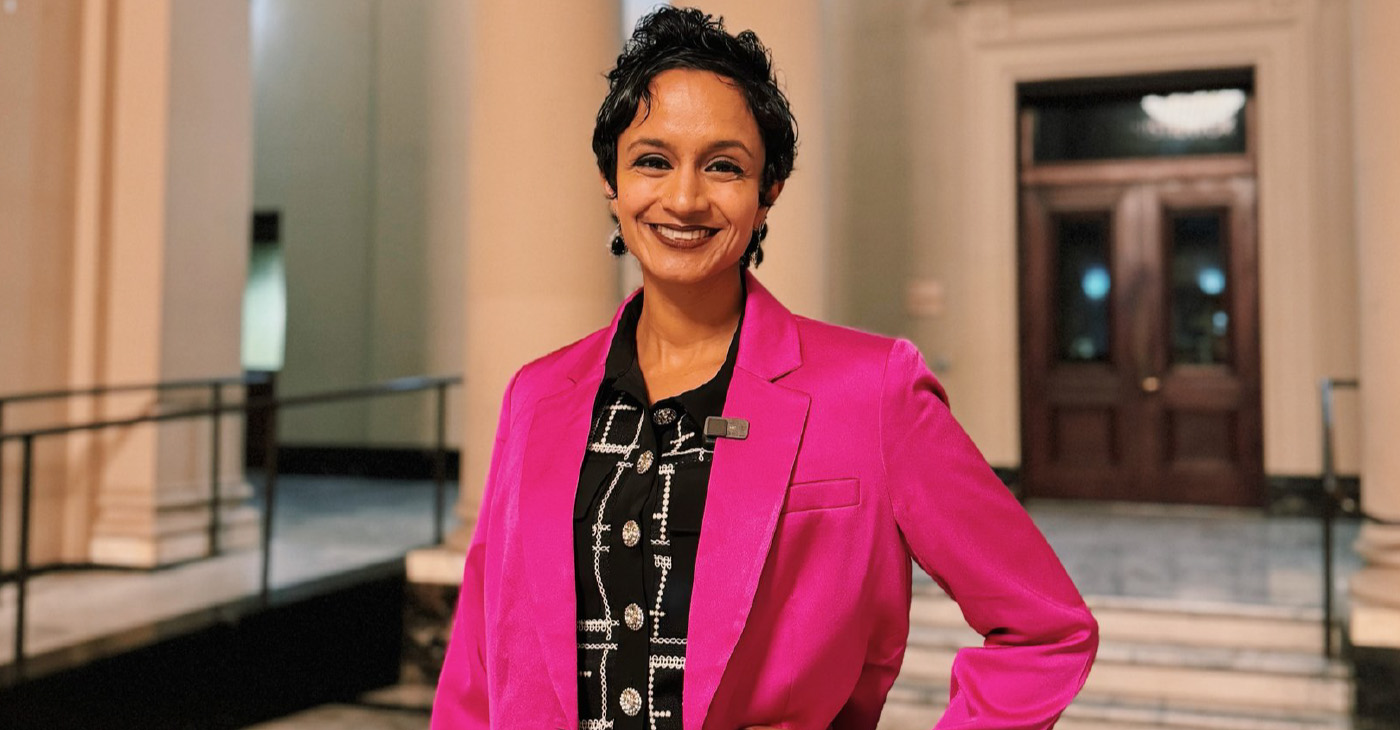
By Janani Ramachandran
There is no greater concern to the people of Oakland today than public safety. Fire stations are the bread and butter of essential city services – and every day that we have stations shuttered, we imperil the lives of our community members. In response to widespread outcry over the current and planned closure of stations, myself, along with Councilmembers Kaplan and Unger, have painstakingly worked to identify millions of dollars of new funding to save our stations. The legislation we introduced on Thursday, February 13th, will amend our budget to prevent the closure of four fire stations that are currently on the chopping block due to our budget crisis and will re-open two closed stations that have already been closed – Station 25 and 28 – in the near future. The resolution that will provide the funding to keep our stations open will go before the full City Council for a vote at our meeting on Tuesday, March 4th at 3:30 PM – and we invite you to join us at City Hall to share your perspective on the topic.
Our budget crisis – one of the worst in Oakland’s history – is compounded by the fact that people do not feel safe coming to Oakland due to our public safety crisis. By investing in our fundamental public safety resources today, we can send a signal to the world that Oakland is open for business. We have such a rich and vibrant culture, arts, and food scene that is worth celebrating – but we can only showcase this if we are able to keep our neighborhoods safe. Having fully functioning fire stations are absolutely essential to these efforts.
With the devastating Los Angeles fire at the top of people’s minds, terrible memories of Oakland’s own wildfires are re-surfacing from the 1991 Oakland Hills Firestorm to the Keller fire just a few months ago – and how essential fire stations are to mitigating these catastrophes. But in Oakland, our fire stations don’t just fight wildfires – they also provide emergency medical services to our most vulnerable constituents, put out structural fires and encampment fires, and much more.
We recognize that there are a number of competing interests and important initiatives fighting for sparse City resources. But from my perspective, core safety services are the most pivotal functions that a City must spend its resources on – especially given the outcry we have heard around fire stations.
The fight to save our stations is not over. The resolution we introduced is a critical first step, and there are hurdles to overcome. If you support keeping our fire stations open, we invite you to be a part of the solution by making your voice heard at the March 4th City Council meeting at 3:30 pm.
-

 Activism3 weeks ago
Activism3 weeks agoWe Fought on Opposite Sides of the Sheng Thao Recall. Here’s Why We’re Uniting Behind Barbara Lee for Oakland Mayor
-

 Activism4 weeks ago
Activism4 weeks agoSan Francisco Is Investing Millions to Address Food Insecurity. Is Oakland Doing the Same?
-

 #NNPA BlackPress4 weeks ago
#NNPA BlackPress4 weeks agoRev. Dr. Jamal Bryant’s Black Church Target Boycott Mobilizes 150,000
-

 Activism3 weeks ago
Activism3 weeks agoFaith Leaders Back Barbara Lee for Mayor, Criticize Candidate Loren Taylor for Dishonest Campaigning
-

 Activism4 weeks ago
Activism4 weeks agoOakland Post: Week of March 12 – 18, 2025
-

 Activism3 weeks ago
Activism3 weeks agoOakland’s Most Vulnerable Neighborhoods Are Struggling to Eat and Stay Healthy
-

 #NNPA BlackPress4 weeks ago
#NNPA BlackPress4 weeks agoRecently Approved Budget Plan Favors Wealthy, Slashes Aid to Low-Income Americans
-

 Activism3 weeks ago
Activism3 weeks agoGroup Takes First Steps to Recall District Attorney Diana Becton









